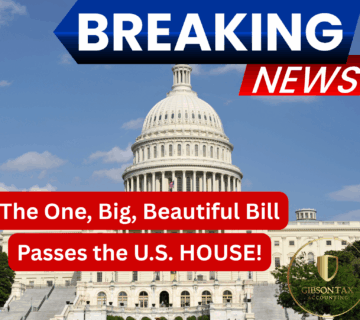As a Triad, NC student looking forward to your summer job, it’s crucial to understand how your earnings might affect your taxes. At Gibson Tax, we’re here to guide you through both federal and North Carolina tax considerations.
Understanding Tax Implications
For federal taxes, you’ll likely need to file a return if you earn more than $14,600 (as of 2024) from all jobs combined. If you’re self-employed, like mowing lawns or babysitting, you’ll need to file if you earn $400 or more.
When it comes to North Carolina taxes, your residency status matters. Whether you’re a resident, non-resident, or part-year resident affects your tax obligations. You’ll need to file a North Carolina tax return (Form D-400) if your total gross income exceeds the state’s filing threshold and you received income from NC sources, including property ownership, business activities, or even gambling in the state.
Filing Your Taxes
For federal taxes, start by gathering all your W-2 forms from employers or 1099 forms if you’re self-employed. You can file online, use tax software, or seek help from a local professional like Gibson Tax. Remember to report all income, even if you didn’t receive a formal document for it.
For North Carolina taxes, you’ll use Form D-400. If you’re a non-resident or part-year resident, you’ll also need to complete Form D-400 Schedule PN. This helps determine what percentage of your income is subject to NC tax. If you worked in multiple states during your break, you might need to file returns in each of those states.
Tax Credits and Deductions
Several federal tax breaks are available for students. These include the American Opportunity Tax Credit, worth up to $2,500 per year for eligible students in their first four years of college, and the Lifetime Learning Credit, which can provide up to $2,000 per tax return for qualified education expenses. You may also be able to deduct up to $2,500 of interest paid on student loans.
While North Carolina doesn’t offer many state-specific education credits, your education expenses may still affect your state taxes. Always check the current NC Department of Revenue guidelines for any updates.
Special Considerations
Out-of-state students attending school in North Carolina may have unique tax situations. International students working summer jobs should be aware of potential tax treaty implications. Always report all income, including cash tips. And remember, while North Carolina’s tax filing deadline typically aligns with the federal deadline, it’s always best to verify the current year’s date.
At Gibson Tax, we’re here to help Asheboro and Triad area students navigate these complex waters. Whether you’re attending Randolph Community College, Asheboro High, or any other local school, don’t let tax confusion stand in the way of your summer job success. Reach out to us for expert guidance on both federal and North Carolina tax regulations.
Proper tax planning now leads to better financial health in the future. Let Gibson Tax help you start your financial journey on the right foot!




